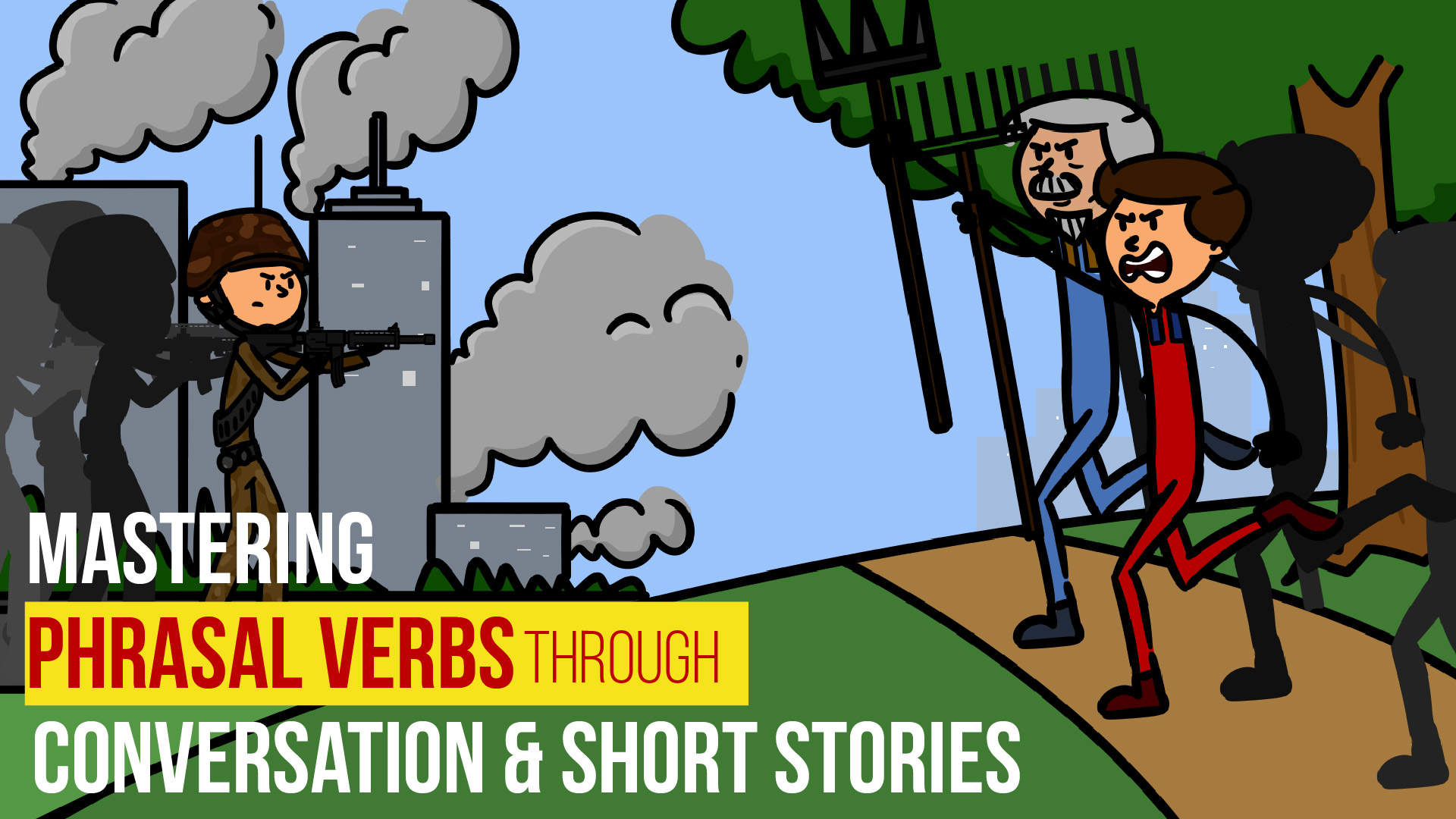| 1. to be about to: to be at the moment of doing something, to be ready
This idiom is often sued with the adverb just.
|
2. to turn around: to move or face in the opposite direction (S); to completely change the condition of
|
3. to take turns: to alternate, to change people while doing something
|
4. to pay attention (to): to look at and listen to someone while they are speaking, to concentrate
|
5. to brush up on: to review something in order to refresh one’s memory
|
6. over and over (again): repeatedly (also: time after time, time and again)
|
7. to wear out: to use something until it has no value or worth anymore, to make useless through wear
|
8. to throw away: to discard, to dispose of
|
| 9. to fall in love: to begin to love
This idiom is used with the expression at first sight to indicate a sudden interest in love.
|
10. to go out: to stop functioning; to stop burning; to leave home or work (also: to step out)
|
11. out of the question: impossible, not feasible
|
12. to have to do with: to have some connection with or relationship to
|

Phrasal Verbs and Idioms for English Speaking | Lesson 8 – Elementary Level
Topics
- Academic Words
- Advanced Level
- American Life
- Brief Biography of Famous People
- CNN Student News
- Common Mistakes in english
- Elementary Level
- English Books
- English Conversations Practice
- English Course
- English for Work
- English Grammar
- English Idioms
- English Reading & Vocabulary
- English Speaking
- English Speaking Practice
- English speech
- English Stories
- English Tips
- English Writing
- Event
- Holidays Worldwide
- Improve Your English
- Intermediate Level
- Learn English with News
- Life-Changing Success Stories
- NEWS
- Phrasal Verb and Idioms
- Synonyms and Antonyms
- TED Talks
- Tool for Learning
- Tools for Learning English
More
Popular Categories




